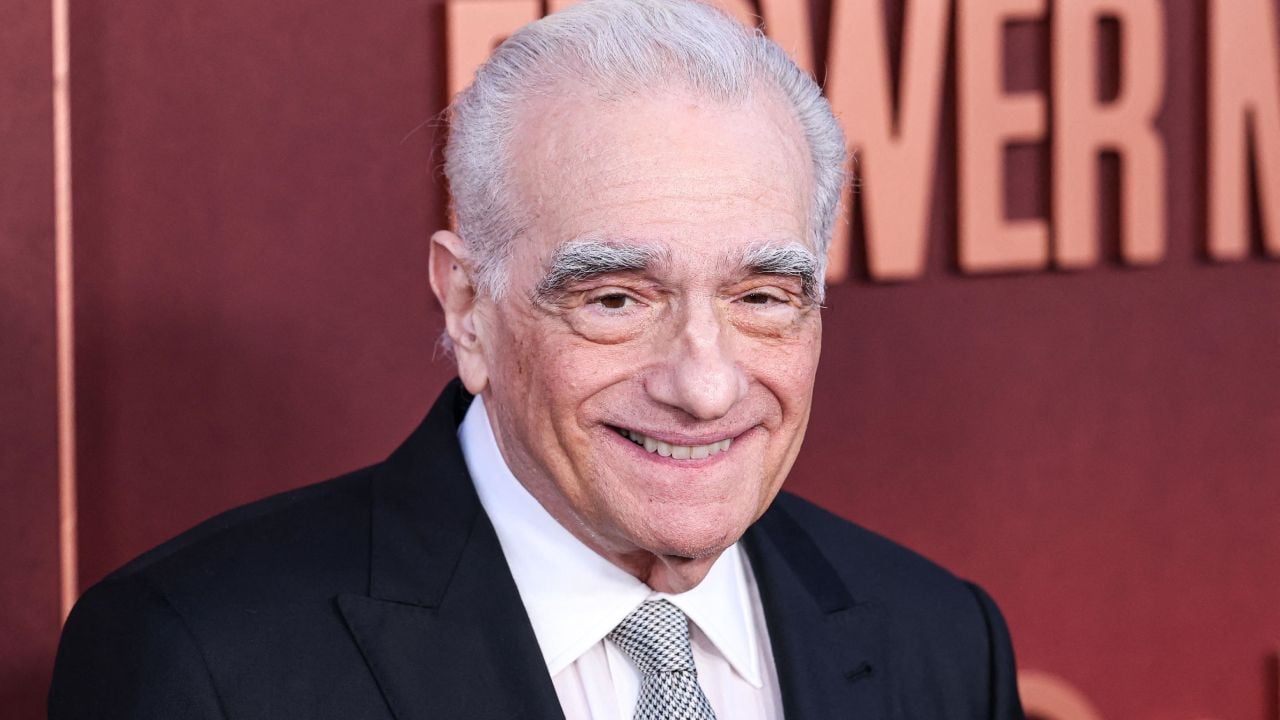In his first month on the Federal Supreme Court, the Lula-appointed minister displeased the government’s progressive base with conservative stances on customs guidelines and lax human rights actions
When President Luiz Inácio Lula da Silva (PT) confirmed the appointment of Christian Zanin to the Federal Supreme Court (STF), the then lawyer turned off his cell phone. While the phone was bombarded with messages from colleagues and journalists, the future minister calmly celebrated his imminent career breakthrough in an intimate circle.
One month after taking office at the FST, the scenario is different. The cell phone out of service is no longer enough to ward off external pressure. And Cristiano Zanin has come under strong pressure from sectors of the left, including the Workers’ Party (PT), for votes considered conservative. Party leaders even issued a resolution with veiled messages addressed to the minister.
Last Thursday’s vote, the 30th, against the timetable for the delimitation of indigenous lands, helped to defuse tempers. In homage to Lula’s ideological base, Zanin received the Minister of Indigenous Peoples, Sonia Guajajara, and allowed himself to be photographed next to her before the trial resumed.
Previous decisions and votes on customs and human rights guidelines have caused unease among progressive sectors. The minister was the only one to vote, for example, against equating cases of homophobia and transphobia to the crime of racial offence. He used a procedural argument – an alleged undue extension of the initial request – and did not enter into the merits of the dispute. With the vote, he was accused of using formal devices as a pretext for not guaranteeing rights.
Zanin also said he was against the decriminalization of possession of marijuana for personal use. “If the State has the duty to guarantee everyone’s health, as envisaged by the Constitution, the decriminalization, even partial, of medicines, could contribute even more to the aggravation of this health problem”, he said in the plenary.
The list doesn’t stop there, however. The minister voted against opening a trial against allegations of police violence against the Guarani and Kaiowá indigenous people in Mato Grosso do Sul, brought by the Articolação dos Povos Indígenas do Brasil, which has declared its support for Lula in the elections.
Zanin still denied having used the so-called principle of insignificance to acquit two men convicted of the theft of a jack, two liters of fuel and a bottle of diesel, worth R $ 100. The principle of insignificance is consolidated in the STF case law. The bottom line is that there are cases so irrelevant, financially and socially, that it’s not worth moving the state’s police and judicial apparatus in search of retribution. The thesis was applied from a double perspective: penal and social.
At the end of his first month at the STF, Cristiano Zanin accumulates a collection of over 800 cases in his office. Most of the shares are inherited from his predecessor, Ricardo Lewandowski, who retired in April. Administrative and criminal law cases prevail.
When his appointment was speculation, few voices on the left rose against his choice. At that time, the position of the then lawyer on relevant issues in the public debate and dear to progressive circles was not known. The criminalist was the lawyer who freed Lula from prison in the Lava Jato operation and antagonized then-judge Sergio Moro – and, for many, deserved a seat on the Supreme Court, since the choice is the president’s prerogative.
For Jeferson Mariano Silva, professor at the Federal University of São Paulo (Unifesp) and researcher in the Justice and Democracy group (Jude), the appointment is precisely linked to the role of the criminalist in Lava Jato. Zanin is the author of the appeal to the STF which brought about a turning point in the operation, with Moro’s declaration of partiality and Lula’s political rehabilitation. The professor believes that the “fight against criminal populism” was the axis around which the appointment of the lawyer was built.
“Zanin didn’t get to the Supreme Court because he was a man of the left nor because he was the president’s lawyer. He got there because he was the jurist who most distinguished himself in demonstrating Lava Jato’s weaknesses”, defends Mariano (read the full interview below). “The reputation he built with senators was decisive. A large part of the current dissatisfaction of sectors of the left with Zanin’s vote derives from the undue inattention of this second factor”.
Zanin’s performance in office fueled the movement to defend the nomination of a black woman to the Federal Supreme Court, something unprecedented in the history of the court. The STF had only three ministers, all white: Ellen Gracie, Carmen Lúcia and Rosa Weber.
Lula will have a new appointment to make with the departure of Rosa Weber, current president of the STF, who will turn 75 this September. The minister has a profile sensitive to human rights guidelines. A manifesto launched jointly by the associations of the black movement, women and jurists calls for representation and directly attacks Zanin.
“We cannot run the risk of seeing another Zanin occupy the Court, with positions contrary to the needs and rights of the majority of the population. Brazil no longer accepts a conservative minister”, reads an excerpt from the manifesto, which already contains more Ten thousand signatures.
Despite the pressure, Lula has avoided committing himself to the candidacy. The president’s allies believe that loyalty is the first criterion for choosing him. They acknowledge, however, that if they do not nominate a woman, they will face the burden of having reduced already unbalanced gender representation in court.
Read the full interview with Professor Jefferson Mariano:
ESTADÃO: Is it normal for the presidential base in charge of appointing the minister to put pressure on the magistrate in the first months after taking office? Is there something new or is this an expected move?
Jeferson Mariano Silva: When the president appoints to the Supreme Court a name deeply identified with his personal circle, one would expect there to be a special expectation that the minister’s votes also identify with the president’s preferences. This is happening with Cristiano Zanin, but it was also the case with André Mendonça and Nunes Marques.
The news is that these are no longer isolated cases. The partisan appointments of the Bolsonaro government have created a strong incentive for his successor to try to neutralize them by investing in exactly the same ruse. In the long run, these incentives could generate a trend and even a new pattern of Supreme Court nominations. The appointment of President Lula to the vacancy left by the retirement of Minister Rosa Weber will be decisive for the eventual establishment of this new standard.
ESTADÃO: When he nominated Zanin, Lula made no secret of wanting loyalty. So far, the minister’s votes that have displeased the ideological basis of the PT are related to human rights and customary agendas. Does this say anything? To be clearer: could the minister’s profile (and now his votes) indicate that the loyalties Lula sought were not with progressive agendas, but with the post-Lava Jato criminal sphere?
Jeferson Mariano Silva: The president’s personal trust was certainly one of the factors that brought Zanin to the Supreme Court. But he wasn’t the only one. In addition to him, the reputation that Zanin built among the senators was decisive. Much of the current dissatisfaction of sectors of the left with Zanin’s vote derives from the untimely inattention of this second factor.
It is worth mentioning that, throughout virtually all of the 2010s, the public image of the Supreme Court was deeply tied to the “anti-corruption” agenda. From the point of view of the political elite, however, this agenda would best be described as reckless penal populism that has wreaked havoc on Brazil’s party system. Considering this recent history, Zanin’s name has represented, in addition to an intimate link with President Lula, a weapon against criminal populism. Zanin didn’t come to the Supreme Court to be a leftist or even to be the president’s lawyer. He got there because he was the jurist who most distinguished himself in demonstrating the weaknesses of Lava Jato.
Left-wing parties do not have enough strength in the Senate to support a supreme nomination with which they ideologically identify.
Both for the vacancy that has come to be filled by Zanin and for the one that will be left by Rosa Weber, concessions were and will be necessary to the other parties that make up the government base. In Zanin’s case, the fight against penal populism was the theme on which the agreement that paved the way for his appointment was produced. For the next vacancy, President Lula will have to find another point of agreement in his base.
Ideological identification is always the most solid ground on which to build candidacies for the Supreme Court. In a hyperfragmented multiparty system like ours, however, it is almost never available.
ESTADÃO: Did the field research find any correlation between the positions of the ministers and who appoints them? Or does it seem true that the presidency confers a certain autonomy with respect to the government/political group responsible for the appointment?
Jeferson Mariano Silva: The political study of the courts in Brazil is recent and, likewise, the judicial behavior practiced in a democratic context and of true judicial independence is relatively recent. Taken together, these factors make our research somewhat inconclusive. What we do know are basically two things: First, ministers appointed by the same president are less likely to disagree with each other than ministers appointed by different presidents. Secondly, and in spite of this, no objective criteria have been found from which we can affirm a general tendency of ministers to vote according to the preferences of the presidents who appointed them.
What is crucial to understanding these two somewhat contradictory conclusions is that, in addition to being covered by a series of formal safeguards aimed at guaranteeing the independence of ministers, the seats of the Supreme Court are occupied by the nomination of the president, with the approval of the senators. Contrary to what is often imagined, this last element – the approval of the senators – is not merely figurative. It is she who determines how closely the appointments (and presumably votes) of ministers to the Supreme Court will be aligned with the president’s preferences.
Source: Terra
Rose James is a Gossipify movie and series reviewer known for her in-depth analysis and unique perspective on the latest releases. With a background in film studies, she provides engaging and informative reviews, and keeps readers up to date with industry trends and emerging talents.






